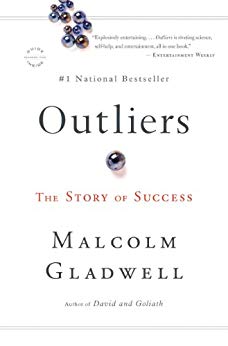

This article is an excerpt from the Shortform summary of "Outliers" by Malcolm Gladwell. Shortform has the world's best summaries of books you should be reading.
Like this article? Sign up for a free trial here .
What is a culture of deference? Why is too much deference a bad thing?
A culture of deference is characterized by high deference to authority. This is most evident in communication. People in highly hierarchical cultures tend to use mitigated speech or make indirect statements when speaking to authority. In its extreme, deference can be problematic because it downplays the significance of the message.
Here is how a culture of deference can jeopardize communication.
The Culture of Deference
In high PDI countries, employees are often afraid to express disagreement with managers, power is not equally distributed, and people in power hold special privileges. By contrast, in low PDI countries, people downplay their power, there are fewer overt symbols of power, and power is more equally distributed in society and within organizations.
Gladwell expands on this by explaining that people in high PDI cultures use mitigated speech. Mitigated speech sounds more respectful and deferential, which is important for maintaining and validating a hierarchical culture. For example, “Let’s turn right” is mitigated speech because it’s phrased as a suggestion; in contrast, “Turn right” is not mitigated speech because it’s a command. A subordinate from a high PDI country wouldn’t feel comfortable commanding his superior to do something, so he would mitigate his speech.
Gladwell points out that a high PDI can be problematic—even dangerous—when mitigated speech downplays the importance and urgency of a message in serious situations.
(Shortform note: As in the last chapter, Gladwell doesn’t make a blanket statement about whether a person from a deferential culture is more or less likely to be successful, but in the following case study, he highlights a situation in which it hindered success. Furthermore, there is evidence that successful business people tend to challenge authority and swim against the current of popular opinion. While researchers attribute this to individual attributes, it stands to reason that cultural norms in a high PDI country could inhibit a person from challenging the status quo.)
To illustrate how deference to authority can hinder success in certain contexts, Gladwell examines how mitigated speech contributed to Korean Air’s high rates of plane crashes—until the airline acknowledged and changed those cultural norms.
Case Study: Korean Air’s Culture of Deference Contributed to Plane Crashes
From 1988 to 1998, Korean Air’s rate of plane crashes far exceeded that of many other airlines; it was an industry outlier. Gladwell points to two factors that help explain this:
- Aviation accidents are more often caused by communication errors rather than a lack of technical skill: One pilot sees something and doesn’t speak up. (Shortform note: Research revealed that many aviation communication errors also result from confusion involving homophones, non-standard phrasing, and differences in meaning between languages or dialects.)
- Korea is a high PDI country, and the Korean language has six levels of conversational address of varying degrees of intimacy. Copilots and crew members used a highly deferential form of mitigated speech when speaking to the captain. (Shortform note: Korea scores 60 on the index, putting it above average.)
Gladwell argues that if the flight crew notices problems but mitigates the message rather than communicating directly, the pilot may not understand the urgency of the situation. For example, on one Korean Air flight, the landing system (called a glide scope) wasn’t working so the captain wanted to make a visual approach, despite bad weather and poor visibility. The first officer and flight engineer worried that a visual approach was dangerous, but they used mitigated speech to voice their disagreement. Despite a few attempts, the pilot didn’t get the hint: The plane crashed on a hill about three miles short of the runway, killing 228 of the 254 people aboard.
(Shortform note: The National Transportation Safety Board’s accident report for this flight lists other factors that contributed to the crash, including the flight’s nighttime landing and the captain’s fatigue. Some of reasons cited may also support Gladwell’s thesis about the roles of hierarchy and mitigated speech: For example, the captain inadequately briefed the flight crew on his intended landing approach, perhaps because he felt he didn’t need to thoroughly explain himself to subordinates, and the captain appeared to believe that the glideslope was working, while the first officer and flight engineer failed to correct him.)
Korean Air Improved Safety by Adapting Its Culture
Gladwell writes that Korean Air turned around its high crash rate by acknowledging the influence of the culture of deference and making English the language of their flight communications. English removed the obstacle of mitigated speech, allowing copilots to speak to their superiors in a direct way without feeling disrespectful. In essence, this gave flight crew members permission to adopt a new culture—one that flattened a previously strict hierarchy—if only for the time they were in the air. Along with a number of other flight safety improvements, this policy change dramatically reduced flight crashes.
(Shortform note: Even before making the cultural shift in flight communications, Korean Air took another dramatic step and brought in foreigners to advise on flight safety and hold senior staff positions—a decision that ran counter to a cultural tendency toward self-reliance.)
With this example, Gladwell argues that your culture is not your destiny, and that being aware of your cultural limitations is the first step to overcoming them.
(Shortform note: Whereas Korean Air had to acknowledge the limitations of its internal culture of deference, international companies have to understand the differences between their internal culture and the cultures of the countries into which they expand. In No Rules Rules, Reed Hastings describes how Netflix accommodated employees from high PDI cultures by adapting its approach to candid feedback, a pillar of the company’s culture. Hastings created opportunities for formal feedback, which was more comfortable than delivering impromptu feedback, and employees from low PDI cultures learned to somewhat mitigate their speech when giving feedback to colleagues from high PDI cultures.)
———End of Preview———

Like what you just read? Read the rest of the world's best summary of "Outliers" at Shortform . Learn the book's critical concepts in 20 minutes or less .
Here's what you'll find in our full Outliers summary :
- What makes some people outliers, and most others not
- Why some genius outliers end up failing in life
- Why Asians are good at math, and other curiosities of culture






